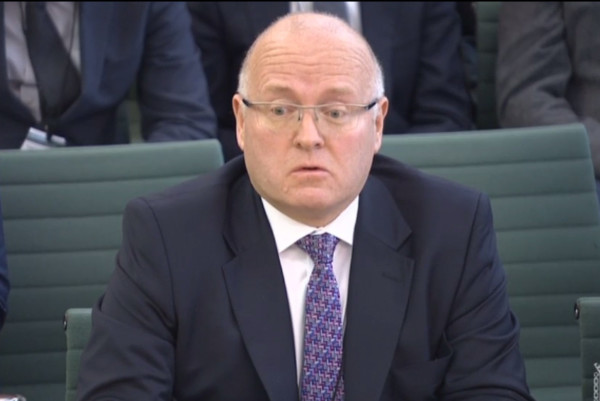

Keith Cochrane, former boss of collapsed Carillion, denied that the company’s board was prioritising the payment of dividends over making pension contributions.
Mr Cochrane, who moved from a non-executive role to become the contractor’s interim chief executive last July, was grilled by MPs in Parliament today (6 February) about the board’s decision on how to tackle its pension fund growing black hole.
The defined benefit (DB) pension schemes of Carillion, one of the UK government's biggest contractors, are all either in the retirement fund of last resort, the Pension Protection Fund (PPF), or will soon enter it.
Carillion has 13 final salary schemes in the UK with more than 28,500 members, and a deficit of £587m at the end of July, according to the company's results.
After unsuccessful talks with its lenders and the UK government, Carillion went into compulsory liquidation on 15 January.
Carillion, which employs about 43,000 people, has been struggling for several months, issuing a profit warning last year that sank its share price – which has fallen from more than £2 a year ago to about 14.2p just before it went into administration.
Mr Cochrane said: “We had an agreed payment pension profile with the pension fund which was in place for 2014, 15 and 16.
The company was paying pension contributions of £50m a year, and continued to do so during 2017. We paid £33m until September.
“We took our pension obligations very seriously; the pension fund was a very important stakeholder for the board and for the group.”
Even though he recognised that the company was paying more in dividends than into the pension fund, he declined that one payment was being prioritised over the other.
As part of the company’s restructuring plan being agreed with lenders, Carillion would stop making pension contributions for a period of time.
Robin Ellison, chairman of trustees for six of Carillion's DB schemes, said that he and his peers were forced to accept this plan or banks wouldn't assist the business with loans.
Mr Cochrane told MPs that there were two solutions for the pension fund at the table under the restructuring plan.
He said: “The options were a [regulated apportionment arrangement] RAA, which would dethatch the pension fund from the company and move it to PPF, or for the pension fund to remain in the company, but at slightly better terms for the members than they would have had under a RAA.”
An RAA is an arrangement which allows a financially troubled employer to detach itself from its liabilities in respect of a DB pension scheme.
This will usually result in the scheme’s controlled entry into the pensions lifeboat, and was used in the case of British Steel.
According to papers released yesterday by the work and pensions committee and the business, energy and industrial strategy committee, the directors of Carillion have been accused of ignoring concerns about its pension for at least six years.
maria.espadinha@ft.com



